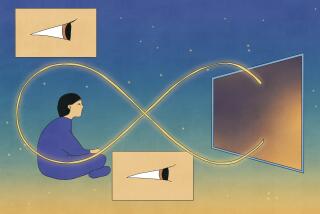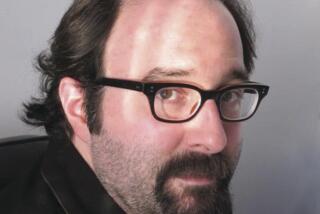Harlan Ellison, Isaac Asimov, Studs Terkel together in 1982 video
Once upong a time, before A&E had grown into the network that brings us “Hoarders” and “Storage Wars,” it was a highbrow cable channel. A&E stood for “arts and entertainment” and showed things like operas and symphonies. In its most nascent form, it was Alpha Repertory Television Service, or ARTS.
An evening of ARTS programming in 1981 included “an organ recital from Notre Dame Cathedral; an essay on the painter Edouard Manet; a ballet tribute to the sculptor Alexander Calder; a profile of Ernest Hemingway, narrated by Anthony Burgess, and a short film starring the mime Marcel Marceau.”
Perhaps mime was a little quiet for TV. By 1982 the channel had livened things up by adding a talk show called “Nightcap,” hosted by one of the greatest listeners of the 20th century: Studs Terkel. His co-host was Calvin Trillin, who even then had been writing for the New Yorker for decades. In some ways, the show was so stereotypically highbrow -- an oriental rug, subtle classical music introduction and soporific announcer -- that it might be mistaken for a “Saturday Night Live” sketch.
Not so when Terkel and Trillin hosted a trio of science fiction writers: Isaac Asimov, Harlan Ellison and Gene Wolfe. That’s partly because of Asimov’s out-of-this-world sideburns -- or are they mutton chops? But mostly because Ellison is in top rapid-fire, pugilistic form.
Ellison comes out swinging. He doesn’t like the term “science fiction,” and as Trillin grapples to come up with the appropriate word to describe Ellison’s feelings about the term, Ellison jumps in with “loathe.”
“I write a kind of surreal fantasy, but they can’t put ‘surreal fantasy’ on a paperback,” Ellison says.
Terkel asks Asimov what he thinks of the term “science fiction,” and Asimov disagrees with Ellison.
“I love it,” Asimov says. “That’s what I grew up reading and writing. And I’m very broad-minded about the term ‘science fiction.’ I’ll include under ‘science fiction’ everything that Harlan wants.”
“I’ll get you later,” Ellison interjects.
Asimov continues: “It’s just that my own personal feeling is that the best science fiction involves science.” Later he explains this further, taking apart the movie “Alien,” which he sees as little more than a spooky story set in space.
The conversation jumps from genre to the pressures of marketing to the prophetic successes and failures of science fiction. The best part may be when Terkel, who’s been slumped in his chair, sits forward to connect the way that writers perceive man’s nature with how seriously their work is taken (spoiler: optimists lose).
See the entire video above. Coming soon: We’ll hear what Ellison has to say about that day.
ALSO:
Ken Baumann’s secret life in books
A poem for a planet: Send your haiku to Mars
Thomas Pynchon’s ‘Inherent Vice’ reported to begin filming
Carolyn Kellogg: Join me on Twitter, Facebook and Google+
More to Read
Sign up for our Book Club newsletter
Get the latest news, events and more from the Los Angeles Times Book Club, and help us get L.A. reading and talking.
You may occasionally receive promotional content from the Los Angeles Times.








